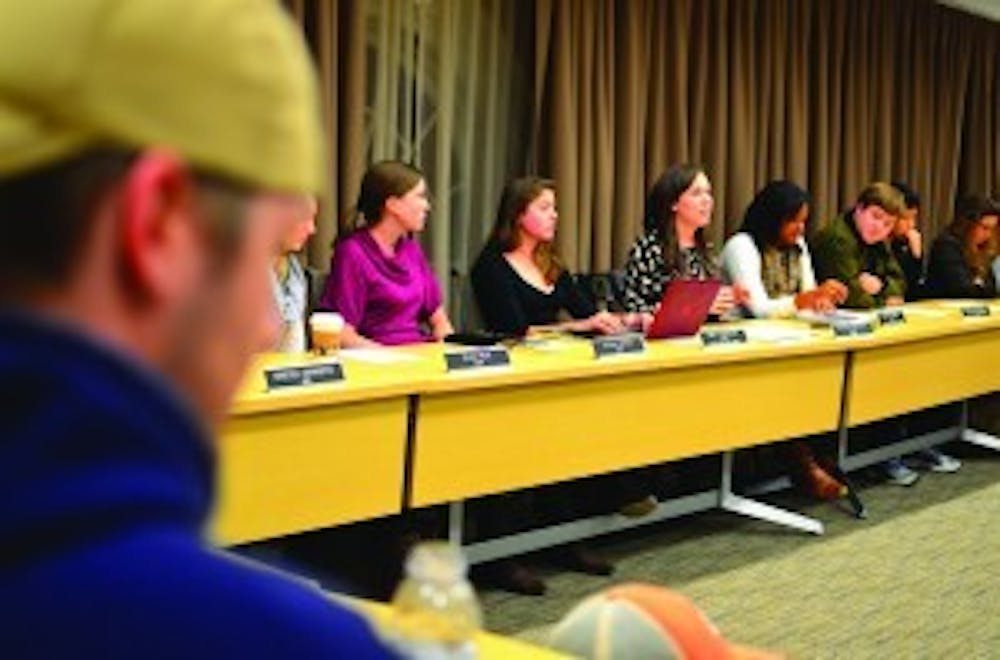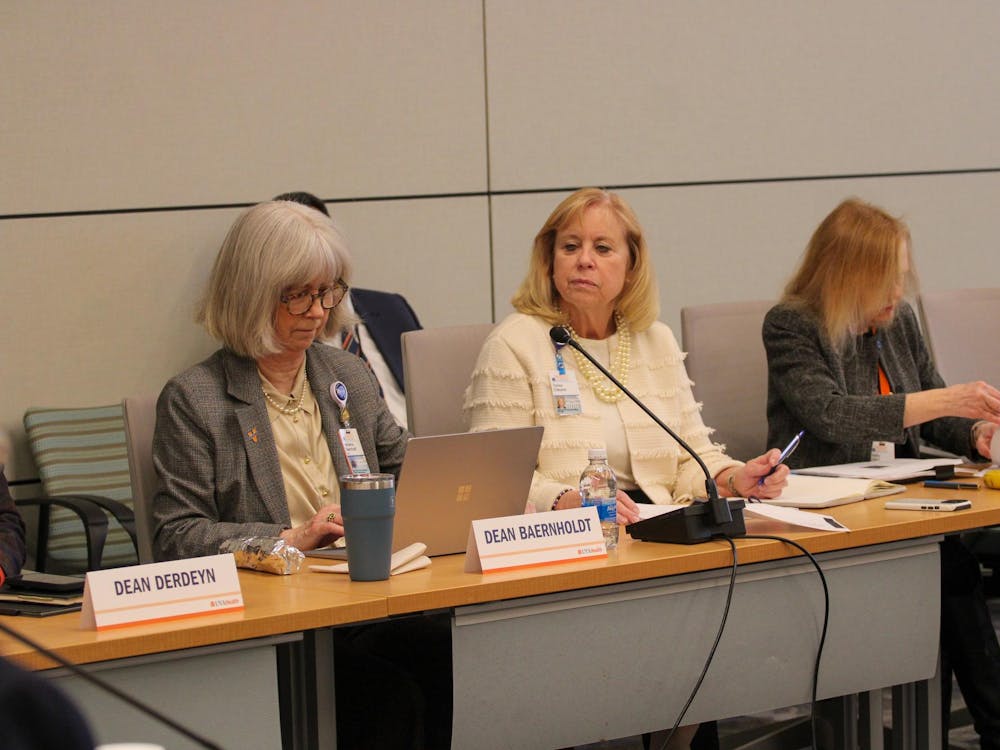University Judiciary Committee Chair Victoria Marchetti yesterday evening proposed 11 articles which, if all passed by the UJC, will result in a new version of its bylaws.
Marchetti said this is the first time the bylaws have been completely rewritten since 2003.
The executive committee, which includes Marchetti, Vice Chair for Trials Emily Forrester, Vice Chair for Sanctions Cliff Cutchins and Vice Chair for First Years Charity Harrell, has been working on the document since the summer, Marchetti said.
"It's important to bring it up to review our process and procedure, to make sure that we have the best procedures that we can," Marchetti said. "We put the bylaws online so an accused student can easily access the bylaws, [and can] read what we do and their rights and feel more comfortable in the situation."
Marchetti said during her time in UJC she and fellow committee members have noticed inconsistencies between the bylaws and UJC practices.
"I realized that there [are] a lot of key elements [in] our procedures that are missing," Marchetti said. "These bylaws are more comprehensive and include things we were missing that we did in practice but weren't in bylaws. [They] make procedure more easily understood."
Many of the changes were merely re-wordings intended to better reflect Committee practice, but Marchetti said there were some substantive changes.
The executive committee wrote two sections placed at the beginning of the bylaws titled "Purpose" and "UJC Overview," which did not previously exist.
Marchetti said the two sections outline why and how the UJC functions.
Another substantive change is the embedding of the First Year Judiciary Council information into the committee's bylaws. Previously, the FYJC had its own constitution and bylaws.
Marchetti said including the information twice was "redundant," and the change makes it easier for a student to see how the FYJC functions, regardless of his academic year.
The amendments also add a section to the UJC bylaws which outlines the procedure for notating a transcript of a convicted student.
Marchetti said in the past permanently marking a suspended or expelled student's transcript occurred in practice, but was never explicitly codified in the bylaws.
The new bylaws also include a section which outlines case documents and clarifies the amount of time the UJC should keep files. The change requires the body to keep for 20 years documents dealing with any student who was suspended, expelled, or found in violation of Standard 1, physical or sexual assault, or Standard 2, threatening health and safety of others. All other case documents are kept for 10 years. Marchetti said this was another common practice which has never been codified.
Several UJC members at yesterday evening's meeting expressed their concerns with the way the new bylaws had been written. Concerns ranged from comma placement to the specific definitions of certain words.
"There [were] a lot of grammar and wording changes; they help make the document easier to read and clear," Marchetti said.
Medical Rep. Cutchins said it was important to gain different University perspectives for the changes.
"[F]rom all the different schools of the University, you get really good insight from all of them," Cutchins said.
Harrell noted the importance of the bylaw changes.
"[The change is] good because it flushes [the processes] out not only for the committee but for all the students that come through our system," Harrell said. "It just helps all parties involved."
The UJC discussed and passed four complete articles and part of a fifth from a total of 11 proposed articles. The body will continue discussion later this week to complete ratification of the document.







